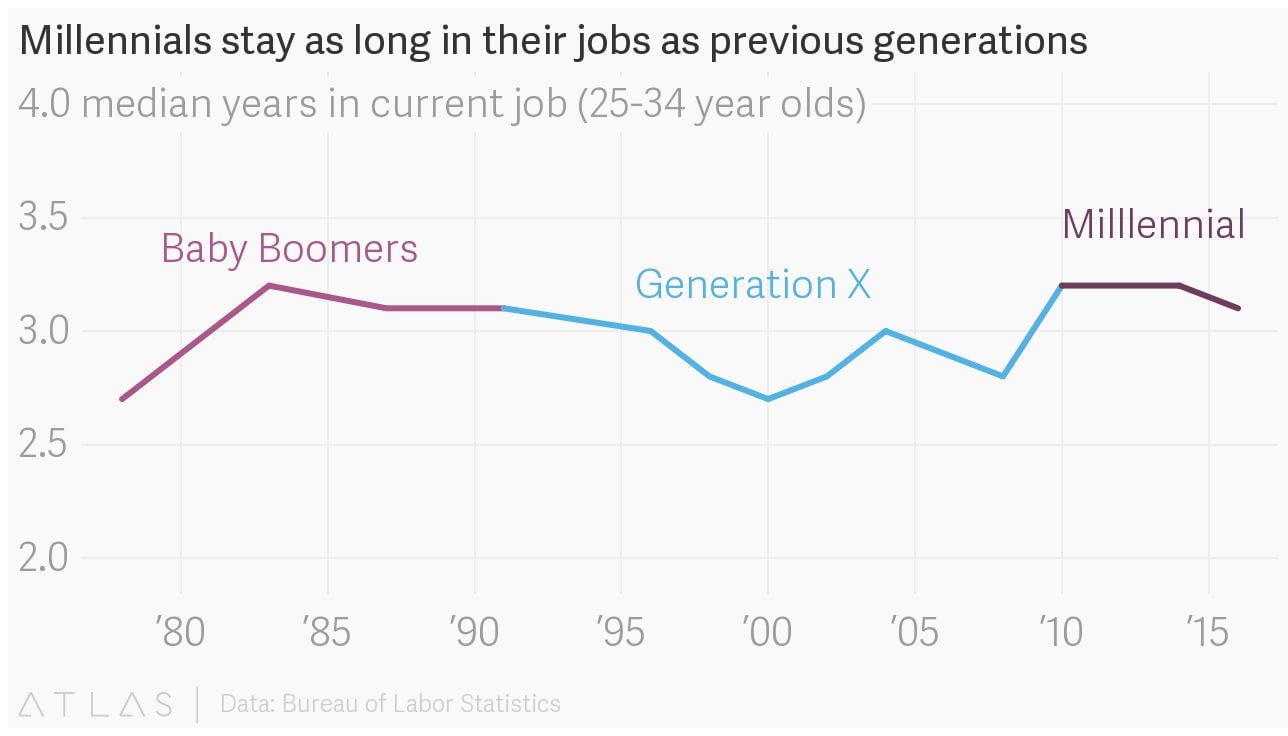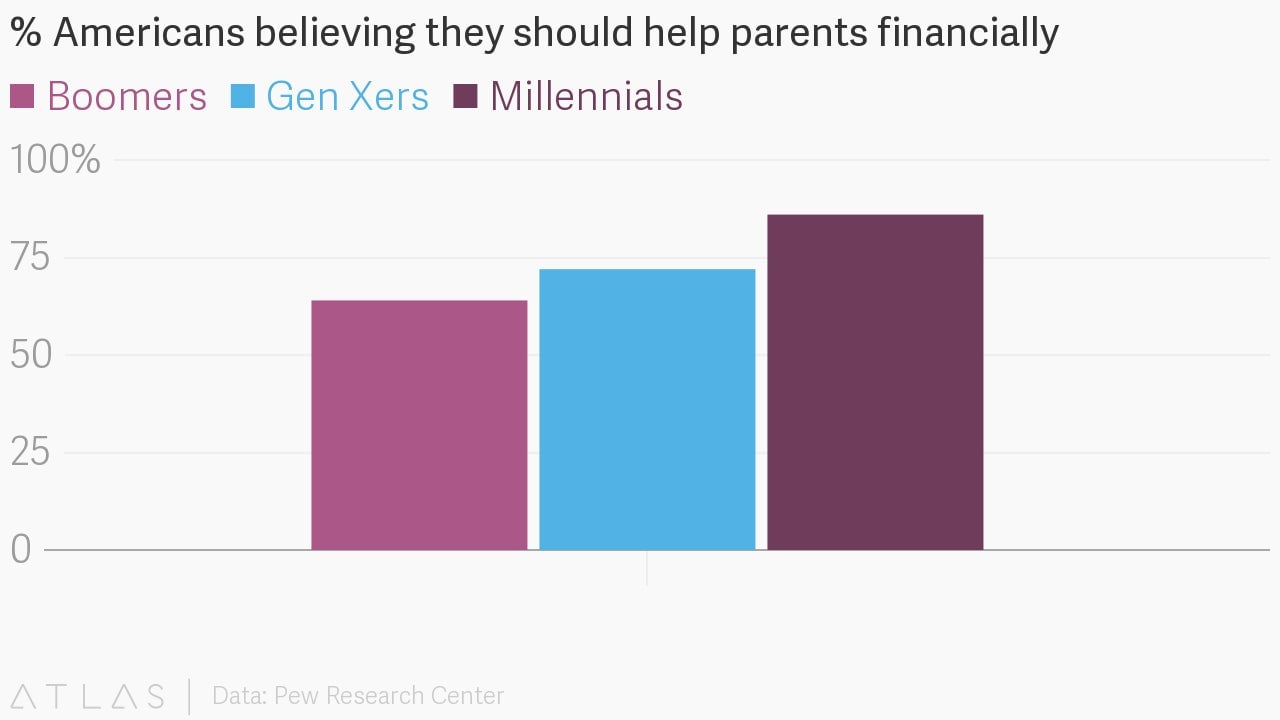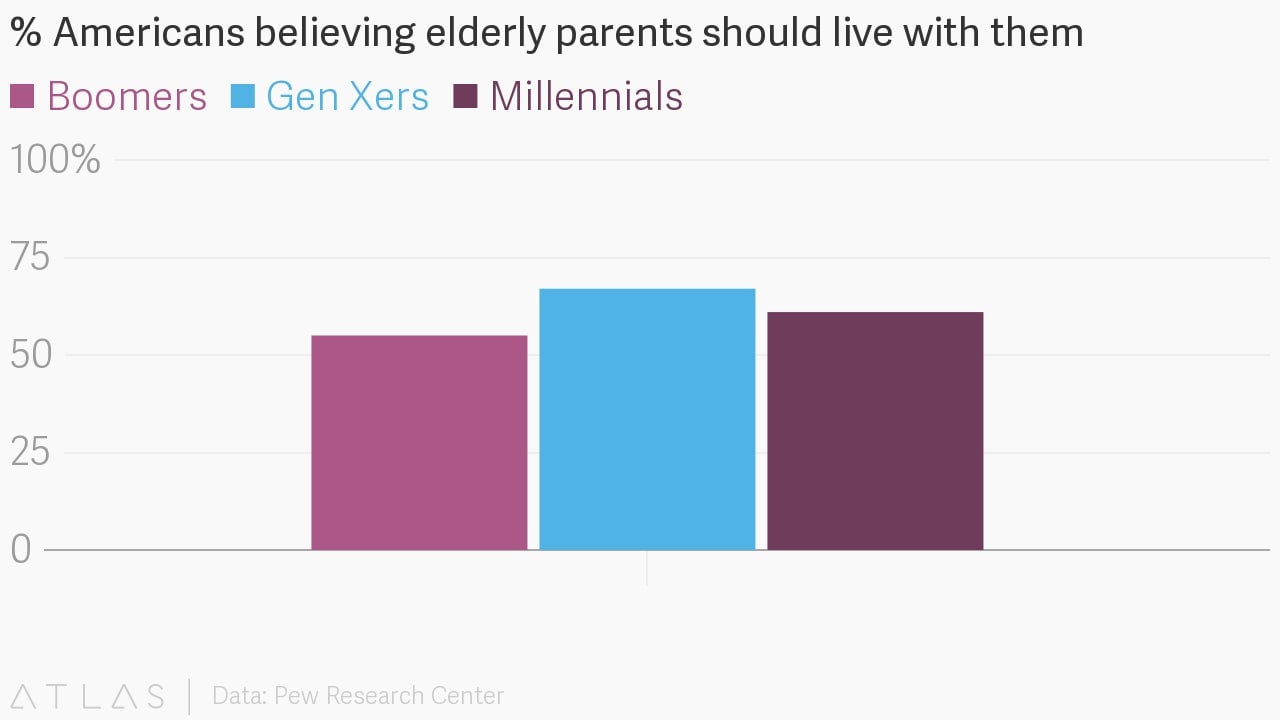The fate of the economy could rest in Boomers, Gen Xers, and Millennials getting along
In 1780, the prescient John Adams wrote to his wife about his children: “I must study Politicks and War that my sons may have liberty to study Mathematics and Philosophy… in order to give their Children a right to study Painting, Poetry, Musick, Architecture, Statuary, Tapestry and Porcelaine.” His words evoke an early vision of the American dream: that each generation can surpass the achievements of the previous. But they also speak to an intergenerational harmony of the time—a harmony that seems to have been lost today.


In 1780, the prescient John Adams wrote to his wife about his children: “I must study Politicks and War that my sons may have liberty to study Mathematics and Philosophy… in order to give their Children a right to study Painting, Poetry, Musick, Architecture, Statuary, Tapestry and Porcelaine.” His words evoke an early vision of the American dream: that each generation can surpass the achievements of the previous. But they also speak to an intergenerational harmony of the time—a harmony that seems to have been lost today.
Much has been written about Millennials, from cover stories pinpointing indolence and privilege to white papers concluding the opposite. What commentators seem to agree on is dissonance between generations. It’s true that wealth disparity between Boomers and Millennials is at an all-time high, and that depression rates among Millennials are soaring. Furthermore, joblessness among the young costs Americans over $25 billion per year, and ageism against older workers is rising.
In 2015, Millennials became the largest segment of the US workforce. Born after 1980, with the oldest in the generation just passing age 36, their ascendance heralded a supposed changing of the guard.
And while the workplace balance is shifting toward Millennials and so-called “Gen Z” close behind, about half of Boomers (born ’46-’64) will have to continue working past age 66. Others will not be able to retire at all. That leaves a close-to-even split across Boomers, Gen Xers (born ’65-’80), and Millennials in today’s workforce.

But buried beneath the myth of greedy Boomers and incorrigible Millennials, Adams’ oft-forgotten wish persists. The story of intergenerational infighting fails to recognize that there’s more that bridges the generations than divides them, and that cooperation is essential for a collective prosperity going forward.
The myth of generational clashes
Here are some facts that might help clear the air for Boomers, Xers, and Millennials.
First, despite the conventional thinking that old and young are competing for jobs, a recent study from Pew found that, between 1977 and 2011, an increase in employment among older workers correlated with a decline in unemployment among youth. A similar trend is apparent in the EU. The conclusion: Retaining older workers does not necessarily hurt job prospects of younger ones—in fact, the opposite seems true.
Generational values are also aligned. Although Millennials are often credited for being society’s disruptors, prioritizing social equality, and wanting to change the world, Boomers were famous for the same qualities a few decades ago, when civil rights and the Vietnam War brought them into the streets.
Consistency can also be found across workplace attitudes. A survey conducted by IBM found that the career goals of Millennials are indistinguishable from those of older generations. Millennials desire financial security and seniority just as much as Xers and Boomers, while Xers and Boomers are just as interested as Millennials in working with a diverse group of people. All groups are interested in retaining flexibility in how and when they work.
Furthermore, contrary to the popular presumption that Millennials are “job hoppers,” a survey from the Bureau of Labor Statistics shows that Millennials are actually more likely to stick with their employers than their Gen X or Boomer counterparts were when they were the same age.

If today’s Millennials look less reliable than today’s Xers, perhaps that’s more symptomatic of youth. For employees in the first act of their career, a period of exploration and adjustment is to be expected—even encouraged. The takeaway for employers when it comes to improving retention among Millennials: worry less about meeting the needs of an iconoclastic generation, and more about addressing the needs of young workers.
Similarly, it’s no surprise that digital natives are better able to adapt to new technology. As of 2010, a full 83% of Millennials sleep with their phones by their pillow, but so do 50% of Boomers. There’s a gap there, but it’s smaller than one might guess.
Finally, both generations suffer from disillusionment about retirement. Boomers, have saved an average $163,577 for retirement, which may have been sufficient in the 1950s when the average lifespan was close to 70. But it isn’t much when divided over 15 to 20 years, which is how long most retirees now need to plan for. The youth, for their part, have largely foregone retirement saving due to burdens of student debt. This reality reflects and explains the considerable insecurity that consumers feel toward their so-called golden years—over 80% worry about having enough money to retire.
In this together
By 2025, Millennials will comprise 75% of the global workforce. Along with Gen Xers, they will be tasked with caring for 75 million aging Boomers. What’s more, by 2030, conservative estimates suggest that care of the elderly will cost the US $295 billion, up from $123 billion in 2000. Contrary to any perceived resentment, this is a burden that the majority of young people are committed to carrying.


In return, surveys show Boomers are willing to cover for Millennials at work as they start families. The fates of the generations are also deeply tied: Boomers’ retirements are in jeopardy if they can’t help Millennials pay off student loans, and ramp-up home-buying and 401(k) investment, both of which are frighteningly stagnant. In 2016, six out of ten Millennials weren’t contributing to employer-sponsored retirement accounts offered to them, and a record 32% of 18-34 year-olds were living with their parents—compared to 28% in 2000.
The pluck of kids today digresses from the vision of generations prior. They’ve mistaken Adams’ wish to be a truism: that children will always do better than their forebears, and ought to take their wisdom with a grain of salt. And their parents—brimming with experience worth sharing—are perhaps forgetting to guide the youth with an understanding heart.
Ultimately, the old won’t be able to retire happily if they leave the young to wither, and the young will stifle economic prosperity if they don’t capitalize on the experience and productivity of the country’s second-largest and hardest-working labor pool.
The battle isn’t intergenerational, but the resolution must be.
This article was produced on behalf of Prudential by Quartz Creative and not by the Quartz editorial staff.
0310263-00001-00